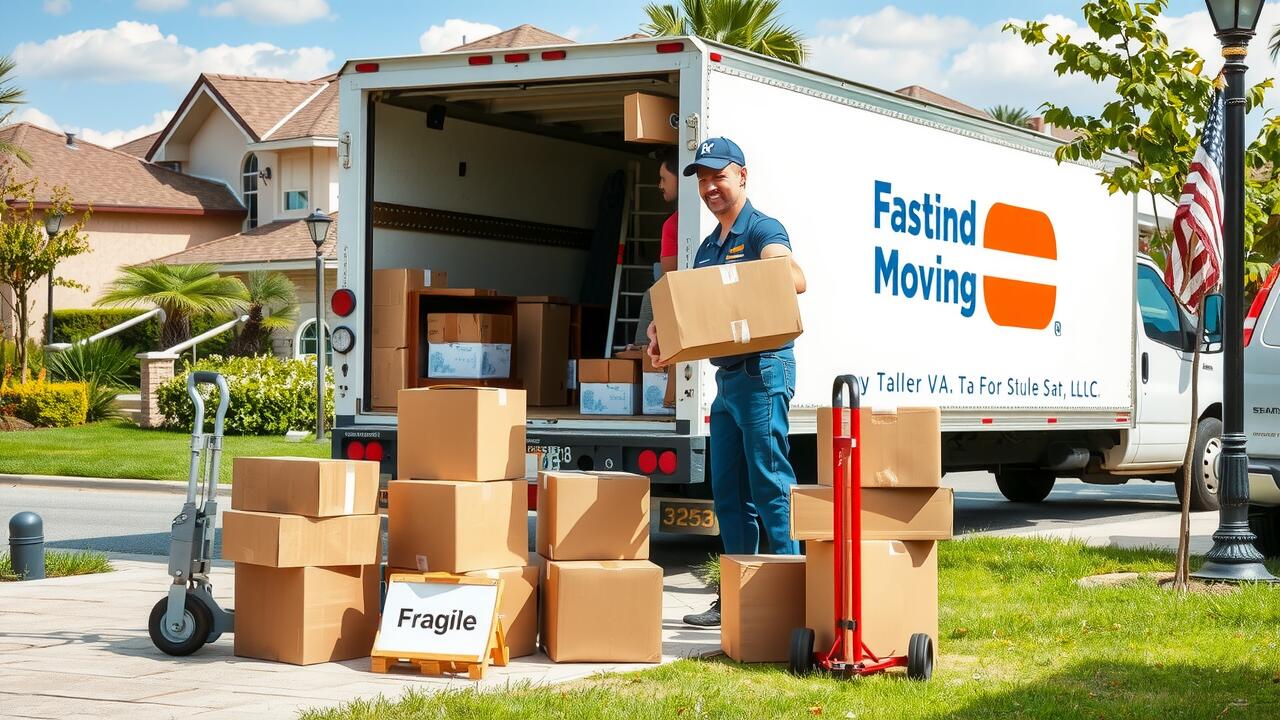
Table Of Contents
Choosing the Right Moving Company
When selecting a moving company, it is essential to consider their experience and reputation. Look for companies that have good customer reviews and a proven track record of reliability. Check if they specialize in both local and long distance moving in Dunlap, Seattle. This versatility can indicate their expertise in handling diverse moving needs. Additionally, inquire about the services they offer, including packing, storage, and insurance options, to ensure they align with your specific requirements.
Another crucial factor in choosing the right moving company is understanding their pricing structure. Request quotes from multiple companies to compare prices and services. Be wary of estimates that seem unusually low, as they may come with hidden fees or subpar service. Also, ensure that the company you choose is licensed and insured to protect yourself against potential issues during the move. Selecting a trustworthy company will make the transition smoother and more efficient for your local and long distance moving in Dunlap, Seattle.
Evaluating Company Credentials
When selecting a moving company, evaluating the credentials is essential for ensuring a smooth and stress-free experience. Verifying the company's licensing and insurance coverage helps protect your belongings during the move. Legitimate moving companies should have a valid USDOT number for long-distance moves, which indicates they meet federal safety and insurance requirements. Checking online reviews and references can also provide insights into their reliability and service quality.
For those specifically looking into Local and Long Distance Moving in Dunlap, Seattle, it is important to look for companies that have a solid reputation in the area. Local expertise can significantly impact the efficiency of your move. Assessing how long a company has been in business can help gauge their experience and reliability. It is also wise to inquire about any additional services they offer, such as packing and storage options, which can enhance your overall moving experience.
Common Misconceptions About Long-Distance Moving
Many people believe that long-distance moving only applies to relocations across state lines or over 100 miles. In reality, the definition of long-distance moving can vary based on the moving company’s policies and regulations. Some companies classify moves exceeding 50 miles as long-distance, while others look at the logistics involved rather than the distance alone. This misconception can lead to confusion when customers prepare for their moving experience.
Another common myth is that long-distance moves are significantly more expensive than local ones. While it’s true that costs can increase with distance, various factors influence pricing. These include the weight of the items being moved, the service options chosen, and the specific routes taken. Additionally, people often overlook the complexities involved in Local and Long Distance Moving in Dunlap, Seattle, which can further affect overall costs. Understanding these elements can provide a clearer perspective on the budget needed for such moves.
Debunking Myths
Many people believe that all moving companies operate the same way, regardless of the distance involved. This misconception often arises from the assumption that local movers can easily transition into long-distance moving without any specific expertise. In reality, local and long-distance moving in Dunlap, Seattle serves different logistical requirements and regulatory frameworks. Long-distance moves often involve unique considerations like varying state laws, specialized packing techniques, and different pricing structures that local moves do not require.
Another common myth is that long-distance moves are always significantly more expensive than local moves. While it is true that longer distances add to the overall cost, factors like the timing of the move, size of the load, and the services selected can greatly influence pricing. Some companies offer competitive rates for long-distance relocations, making it crucial for consumers to compare quotes and services before assuming they cannot afford a long-distance move. Understanding these nuances helps in making more informed decisions when hiring moving services.
Legal Regulations in Long-Distance Moving
When planning a long-distance move, it is essential to understand the legal regulations governing the process. Federal law regulates interstate moves, which require moving companies to have specific licenses and insurance coverage. These regulations aim to protect customers by ensuring that moving companies operate under established safety and service standards. A reputable moving company will provide documentation that proves compliance with these federal requirements.
Local and long-distance moving in Dunlap, Seattle, may have additional state-specific regulations as well. It is crucial to verify that the chosen moving company is registered with the Washington Utilities and Transportation Commission if you are moving within the state. Researching and confirming the necessary licenses ensures that your move adheres to local laws, providing you with peace of mind during the transition. Understanding these regulations can help avoid potential issues or unexpected fees throughout the moving process.
Understanding Licensing Requirements
When it comes to long-distance moving, understanding licensing requirements is crucial. Moving companies must adhere to regulations set by the Federal Motor Carrier Safety Administration (FMCSA). This ensures that they are legally authorized to transport goods across state lines, providing protection for customers. Prospective clients should verify that the company holds a valid USDOT number, which indicates compliance with federal standards.
For anyone considering Local and Long Distance Moving in Dunlap, Seattle, it is advisable to check state-specific regulations as well. Various states may impose additional licensing requirements for moving companies, which can affect the services offered. Connecting with a licensed professional not only ensures peace of mind but also underlines the company's commitment to compliance and customer satisfaction.
FAQS
What distance is considered long-distance for a moving company?
Generally, a move is considered long-distance when it exceeds 400 miles. However, this can vary by company, so it's important to check with your specific moving provider.
How do I choose the right moving company for a long-distance move?
When choosing a moving company for a long-distance move, consider their experience, customer reviews, licensing, and insurance coverage. It's also beneficial to get multiple quotes before making a decision.
Are there any legal regulations I should be aware of for long-distance moving?
Yes, long-distance moving companies must adhere to federal and state regulations, including obtaining the necessary licenses and insurance. It's crucial to verify that the company you choose complies with all legal requirements.
What are some common misconceptions about long-distance moving?
One common misconception is that all moving companies provide the same services and pricing. In reality, services and costs can vary significantly, so it's essential to do your research to find the best fit for your needs.
Can I track my belongings during a long-distance move?
Yes, many reputable moving companies offer tracking services that allow you to monitor the status and location of your belongings during the move. Be sure to ask about this feature when selecting a moving company.
